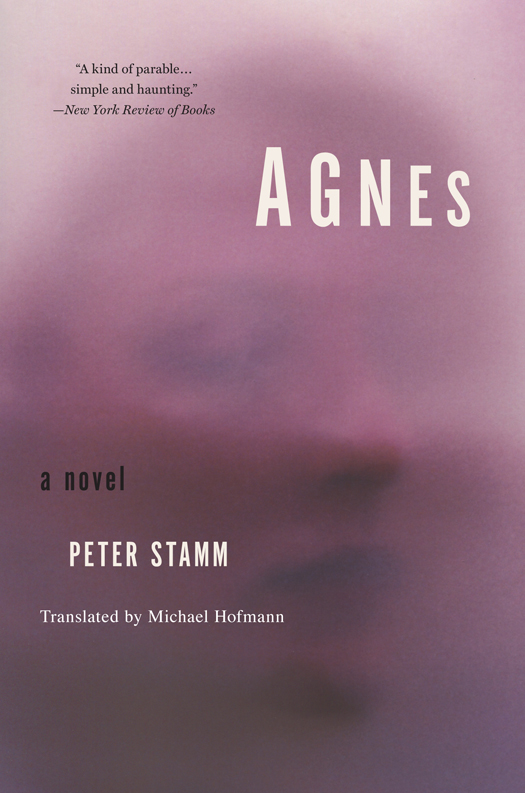
Agnes
A Novel
کتاب های مرتبط
- اطلاعات
- نقد و بررسی
- دیدگاه کاربران
نقد و بررسی

August 29, 2016
The brief, lucid chapters in Stamm’s (All Days Are Night) short novel, first published in Germany in 1998, hint at something deeper roiling underneath. At the same time, there’s a wryness throughout, reminiscent of Beckett’s deadpan humor, precluding any pretentiousness. The first-person narrator, a writer, could be Stamm himself. The story’s opening is a puckish grabber. “Agnes is dead. Killed by a story. All that’s left of her now is this story.” So how literally is the reader to take this? Stamm blurs the line between the writer’s life and his creations, both for his protagonist and the reader. He meets Agnes in the reading room of the Chicago Public Library. They both have other lovers whom they freely talk about, as well as their writing. He in fact writes the story of Agnes even as he is living it. And she collaborates; writing her life becomes his obsession. Nevertheless, he begins an affair with an alluring Frenchwoman named Louise. When he is with her, he doesn’t think about Agnes, who meantime may be having his child, at least in his imagination. The real Agnes has a miscarriage; from there, the path to her demise is inevitable yet surprising. This is a provocative and mesmerizing book.

A writer suspects the story he's writing can alter the story of his life.Since the 1998 publication of this debut novel, now receiving its first American publication, Swiss author Stamm (All Days Are Night, 2014, etc.) has received international acclaim for his parables and metafictional narratives. This short novel should appeal to readers enchanted by his elliptical style, but it also reads like very early work. A Swiss writer of nonfiction meets a much younger graduate student in the Chicago public library. Even before exchanging names, they sense an intuitive connection, an intimacy of strangers. Her name provides the book's title, and her obsessions--with death, with having a story written about her--provide its plot. He had earlier dabbled in fiction, even made it 50 pages into a novel, but abandoned it, he tells her, because "I was never in control of my material. It was always artificial. I got so drunk on the sound of my own words." Quickly and inevitably they become lovers, he more concerned with the age difference than she apparently is, and she keeps pressing him on the matter of fiction: " 'Write a story about me, ' she said, 'so I know what you think of me.' " Though the novel is narrated in the first person by the writer, the reader isn't quite sure what he thinks of Agnes, and neither is he. The results may well surprise all, particularly as he moves from writing what has happened between the two of them--and discovering that their impressions and recent memories differ significantly--and lets the story proceed "into the future. Now Agnes was my creation. I felt the new freedom lend wings to my imagination. I planned her future for her." Will those plans for the future become reality? Will they include him? Can he edit fate? And what's with all these forests where people venture and lose themselves, never to return? Less a fully fleshed novel than an extended meditation on the interrelationship between life and fiction. COPYRIGHT(1) Kirkus Reviews, ALL RIGHTS RESERVED.

























دیدگاه کاربران